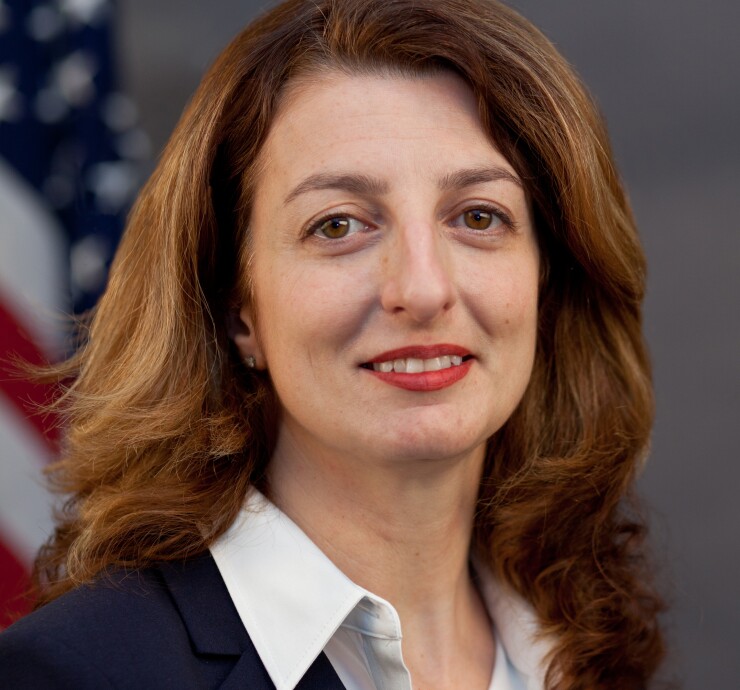
WASHINGTON — Offering document misstatements related to continuing disclosure violations have been widespread and upcoming enforcement actions will provide guidance on the Securities and Exchange Commission's views, the SEC's muni enforcement chief told issuers Thursday.
LeeAnn Gaunt, chief of the SEC enforcement division's municipal securities and public pensions unit, made those comments at the Government Finance Officers Association's Winter meeting near Capitol Hill.
Gaunt told members of the GFOA's debt committee that the Municipalities Continuing Disclosure Cooperation Initiative revealed that many official statements released during the past five years have falsely stated that issuers were in full disclosure with continuing disclosure obligations, including deals since 2012 when the SEC issued a risk alert warning the market about forthcoming increased scrutiny of that conduct.
Some market participants had suggested that the bad behavior largely abated after 2012, but Gaunt said her initial viewing of the many issuer submissions showed that was not the case.
Gaunt added that the SEC may never reveal how many issuers and underwriters took advantage of the program, which closed Dec. 1, to report their misleading offering documents and get reduced settlement terms. She has repeatedly declined to tell issuers what violations would be material from the SEC's point of view, and worth reporting, and continued to take that stance Thursday.
One committee member expressed disappointment, but Gaunt said enforcement actions based on the MCDC submissions would be revealing. Bond lawyers had expressed frustration over a vague settlement with King's Canyon Joint Unified School District in California.
"The way we speak is through enforcement," Gaunt said. "I expect that [future MCSC settlements] will be more detailed than King's Canyon."
Issuers pressed Gaunt hard on the issue, telling her it would be more efficient to provide such guidance rather than set up a "burdensome regulatory framework" that would consume issuer resources. Gaunt told the issuers that the SEC didn't require issuers to spend anything on the MCDC, because it was a totally voluntary program.
"There is no big regulatory framework," Gaunt said, pointing to the anti-fraud provision of the federal securities laws as her office's primary tool. "Don't lie, cheat or steal. That's the rule."
"This is a new realm for us," said GFOA president Robert Eichem, who said issuer officials want to do the best they can in terms of compliance. "They want to know what the rules are," he said.
Gaunt also told issuers that her office is focused on financial professionals who abuse issuers, and "stands ready" to bring cases related to the municipal advisor rule's requirement that firms providing advice to issuers about muni bonds put the issuers' interests ahead of their own.
The enforcement division's other priorities are largely driven by the SEC's 2012 Report on the Municipal Securities Market, Gaunt said. That report, which was unanimously adopted by the commission, provided a number of recommendations related to price transparency and retail investor protection.





